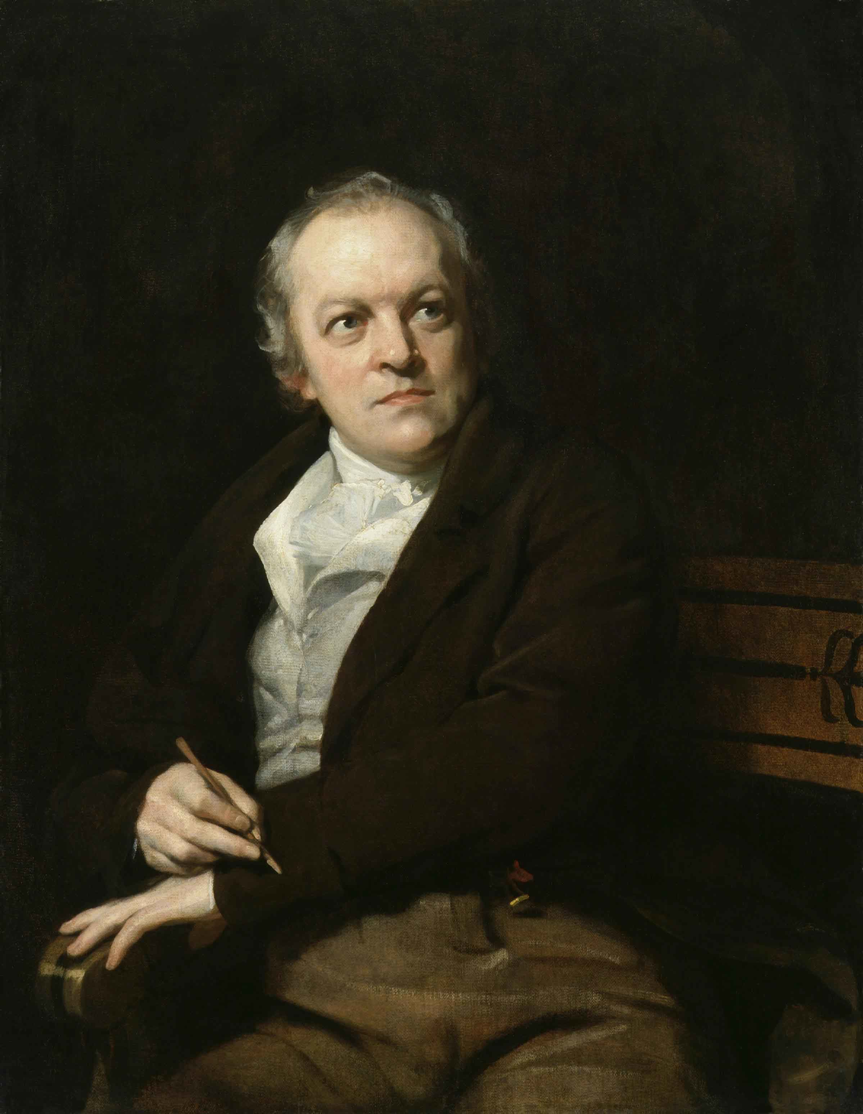William Blake słynne cytaty
Źródło: Boski wizerunek, przeł. Jerzy Pietrkiewicz
Źródło: Nie próbuj mówić o miłości
Tiger, tiger, burning bright
In the forests of the night,
What immortal hand or eye
Could frame thy fearful symmetry? (ang.)
Inna wersja:
Tygrysie, błysku w gąszczach mroku,
Jakiemuż nieziemskiemu oku
Przyśniło się, że noc rozświetli
Skupiona groza twej symetrii? (tłum. Stanisław Barańczak)
Źródło: Tygrys, przeł. Jerzy Pietrkiewicz
William Blake Cytaty o myślach
I will not cease from mental fight,
Nor shall my sword sleep in my hand,
Till we have built Jerusalem
In England’s green and pleasant land. (ang.)
Przekład Macieja Frońskiego:
W bitewnym niech nie padnę szale
I niech w mym ręku miecz nie zaśnie,
Aż zbudujemy Jeruzalem
Tu, na angielskiej ziemi właśnie.
Źródło: hymn Jerusalem ze wstępu poematu Milton: A Poem (1804), tłum. Jerzy Pietrkiewicz.
William Blake cytaty
od tego fragmentu została zaczerpnięta nazwa zespołu The Doors.
Źródło: Marek Gaszyński, Czy wiesz? Zagadki. Muzyka rozrywkowa, Warszawa 1996, wyd. Alfa, s. 20.
To see a World in a Grain of Sand
And A Heaven in a Wild Flower,
Hold Infinity in the palm of your hand
And Eternity in an Hour. (ang.)
Wróżby niewinności
„Nadmiar smutku się śmieje. Nadmiar radości płacze.”
Zaślubiny Nieba i Piekła
Every morn and every night
Some are born to sweet delight.
Some are born to sweet delight,
Some are born to endless night. (ang.)
Wróżby niewinności
William Blake: Cytaty po angielsku
“The true method of knowledge is experiment.”
All Religions are One (1788)
1780s
Źródło: 1790s, The Marriage of Heaven and Hell (1790–1793), Proverbs of Hell, Line 22
If You Trap the Moment
1790s, Poems from Blake's Notebook (c. 1791-1792)
“True superstition is ignorant honesty & this is beloved of god and man.”
1780s, Annotations to Lavater (1788)
The Gray Monk, st. 8
1800s, Poems from the Pickering Manuscript (c. 1805)
Źródło: 1800s, Jerusalem The Emanation of The Giant Albion (c. 1803–1820), Ch. 1, plate 4, lines 18-28 The Words of Jesus to the Giant Albion
Źródło: 1800s, Jerusalem The Emanation of The Giant Albion (c. 1803–1820), Ch. 3, plate 55, line 60
Letter to William Hayley (1803-10-07)
1810s
Źródło: 1800s, Jerusalem The Emanation of The Giant Albion (c. 1803–1820), Ch. 1, plate 27, "To the Jews" 1) lines 9-12
No. 2, The Look of Love
1790s, Poems from Blake's Notebook (c. 1791-1792), Several Questions Answered
“He who shall teach the child to doubt
The rotting grave shall ne'er get out.”
Źródło: 1800s, Auguries of Innocence (1803), Line 87
My Specter, st. 1
1800s, Poems from Blake's Notebook (c. 1804)
Introduction, st. 1
1790s, Songs of Experience (1794)
Źródło: 1800s, Jerusalem The Emanation of The Giant Albion (c. 1803–1820), Ch. 4, prefatory poem, plate 77, st. 1
“My Brother starv'd between two Walls,
His Children's Cry my Soul appalls;”
Ibid, stanza 5
1810s, Miscellaneous poems and fragments from the Nonesuch edition
To the Public, plate 3 (the last paragraph)
1800s, Jerusalem The Emanation of The Giant Albion (c. 1803–1820)
“For washed in life's river,
My bright mane forever
Shall shine like the gold
As Iguard o'er the fold.”
Night, st. 6
Songs of Innocence (1789–1790)
Źródło: 1800s, Jerusalem The Emanation of The Giant Albion (c. 1803–1820), Ch. 3, plate 57
“They suppose that Woman's Love is Sin; in consequence all the Loves & Graces with them are Sin.”
1780s, Annotations to Lavater (1788)
The Ecchoing Green, st. 1
1780s, Songs of Innocence (1789–1790)
Blake's Exhibition and Catalogue of 1809, A Descriptive Catalogue of Pictures: Number V. The Ancient Britons
1800s
“A dog starved at his master's gate
Predicts the ruin of the state.”
Źródło: 1800s, Auguries of Innocence (1803), Line 9
No. 4, What Is It
1790s, Poems from Blake's Notebook (c. 1791-1792), Several Questions Answered
Introduction, st. 5
1780s, Songs of Innocence (1789–1790)
Źródło: 1800s, Jerusalem The Emanation of The Giant Albion (c. 1803–1820), Ch. 1, plate 13, line 66 — plate 14, line 1
